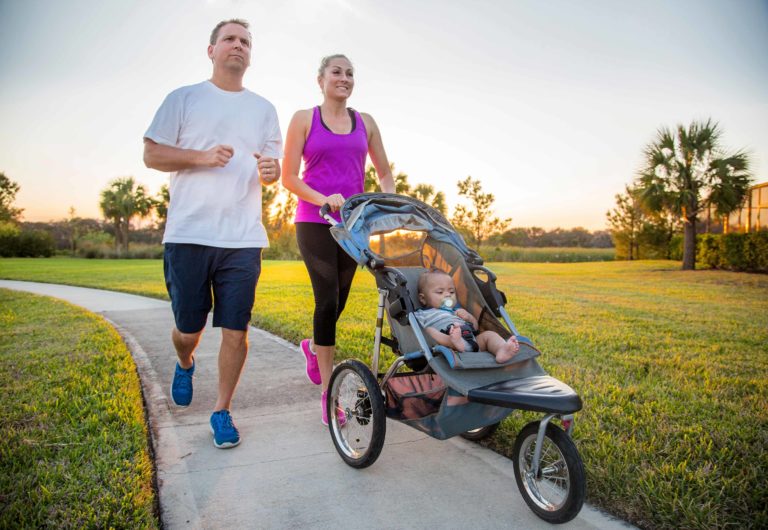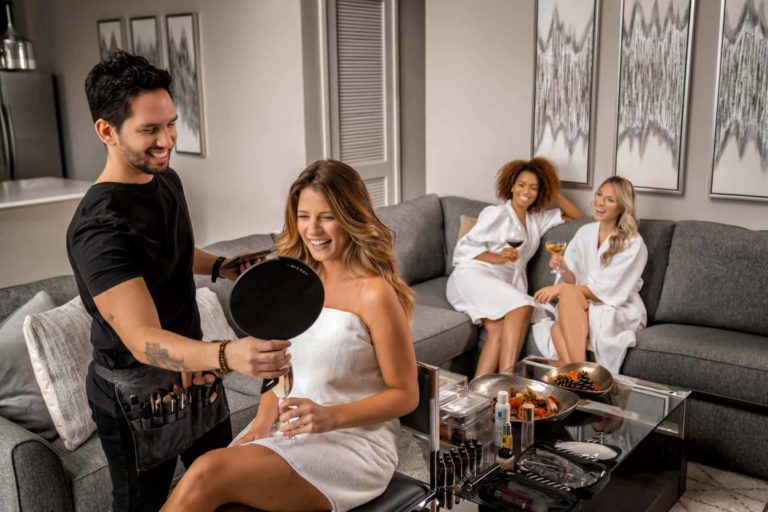Stay Well. Care Well. at Spectrum Resort Orlando
Just as exercise is good for muscles, it’s also good for the health of your skin. Studies suggest that both endurance exercise and high-intensity aerobic training may help prevent and reduce signs of aging in the skin.
You may have considered physical activity only in the context of something you do to keep your heart strong and maintain your weight, but regularly moving your body also plays a vital role in skin health and appearance.
Immediate effects of exercise include increased blood flow to the skin and increased lymph flow, which decreases eye puffiness.
When it comes to skin aging, though, the benefits of exercise are numerous. Studies show that the skin of older athletes was healthier than that of older sedentary folks. In particular, the dermis (the second layer of skin) was thicker; thinning of the dermis is associated with sagging and wrinkles. A substance involved in the immune system called IL-15 is released during exercise, and an increase of it is one factor that helps with skin health.
Get that Glow
Once you have cooled down and chugged some water after exercise, you likely noticed your radiant, flushed skin. There’s a reason why so many fitness enthusiasts rave about this feeling, and why many cosmetic companies try to replicate it: it’s naturally attractive. This allure is created by an increase of blood flow to all organs, including our largest one, the skin. This increased flow provides oxygen and nutrients to the skin cells and clears impurities from the skin, creating a post-workout glow.
Another way fitness improves our skin’s appearance is through stress management and sleep regulation. Because burning calories also burns off anxiety, it can decrease the likelihood or severity of skin conditions like acne, eczema, or psoriasis, since stress can play a role in those conditions. And when you stick to a manageable workout schedule, you tend to sleep better. Plus, with more hours of shut eye, those pesky dark eye circles are less common, too.
Maintain Skin Health
Now that you know just what exercise can do for your complexion, you’ll want to maintain the skin-care habits that prevent acne, improve hydration, and reduce irritation and damage. Going that extra mile — in the gym or with your skin — can help turn back the clock.
When exercising in the sun, you’re obviously going to work up a sweat! You’ll want to wear sunscreen and ensure that your SPF is sweatproof, too. Sports sunscreens usually have this in mind; the label should also list how many minutes the product is both water- and sweat-resistant. Apply it to your face, ears, throat, chest, and back of the neck.
When you sweat, it’s not just water that comes out of your pores. Sweat also contains salt and other minerals, which can affect the health of your skin. Here are some tips for keeping your skin healthy while sweating:
Cleanse your Skin
After sweating, it’s essential to cleanse your skin thoroughly to remove any sweat, dirt, and bacteria that may have accumulated. Use a gentle cleanser that won’t strip your skin of its natural oils.
Exfoliate
Regular exfoliation can help remove dead skin cells and prevent clogged pores. However, avoid using harsh exfoliants that can irritate your skin. Instead, opt for gentle scrubs or chemical exfoliants like alpha hydroxy acids (AHAs) or beta hydroxy acids (BHAs).
Sweating can strip your skin of its natural moisture, leaving it dry and dull. After cleansing and exfoliating, apply a lightweight moisturizer that will hydrate your skin without feeling heavy or greasy.
Use Sunscreen
Sunscreen is a must-have for any skincare routine, especially if you’re spending time outdoors and sweating. Look for a broad-spectrum sunscreen with at least SPF 30 and reapply every two hours or after sweating or swimming.
Avoid Touching your Face
When you sweat, your hands can transfer bacteria and dirt to your face, which can lead to breakouts and other skin issues. Try to avoid touching your face as much as possible and use a clean towel to wipe away sweat instead.
Stay Hydrated
Drinking plenty of water can help keep your skin hydrated and healthy. Aim to drink at least eight glasses of water a day and more if you’re exercising or sweating heavily.
Post-Workout Refresh
Go for a wash with salicylic acid or benzoyl peroxide, which help clean your pores and fight bacteria. Because salicylic acid is oil-soluble, it can penetrate effectively into our pores and provide deep exfoliation as well as prevention of excess oil production. This helps treat whiteheads, blackheads, and other inflammatory acne.
Benzoyl peroxide wash kills the bacteria that causes acne and can also help reduce body odor after a workout. However, it can sometimes be irritating for people with sensitive skin, so approach it with caution. If you don’t have any cleanser nearby, lukewarm water alone will go a long way to help prevent breakouts.
















